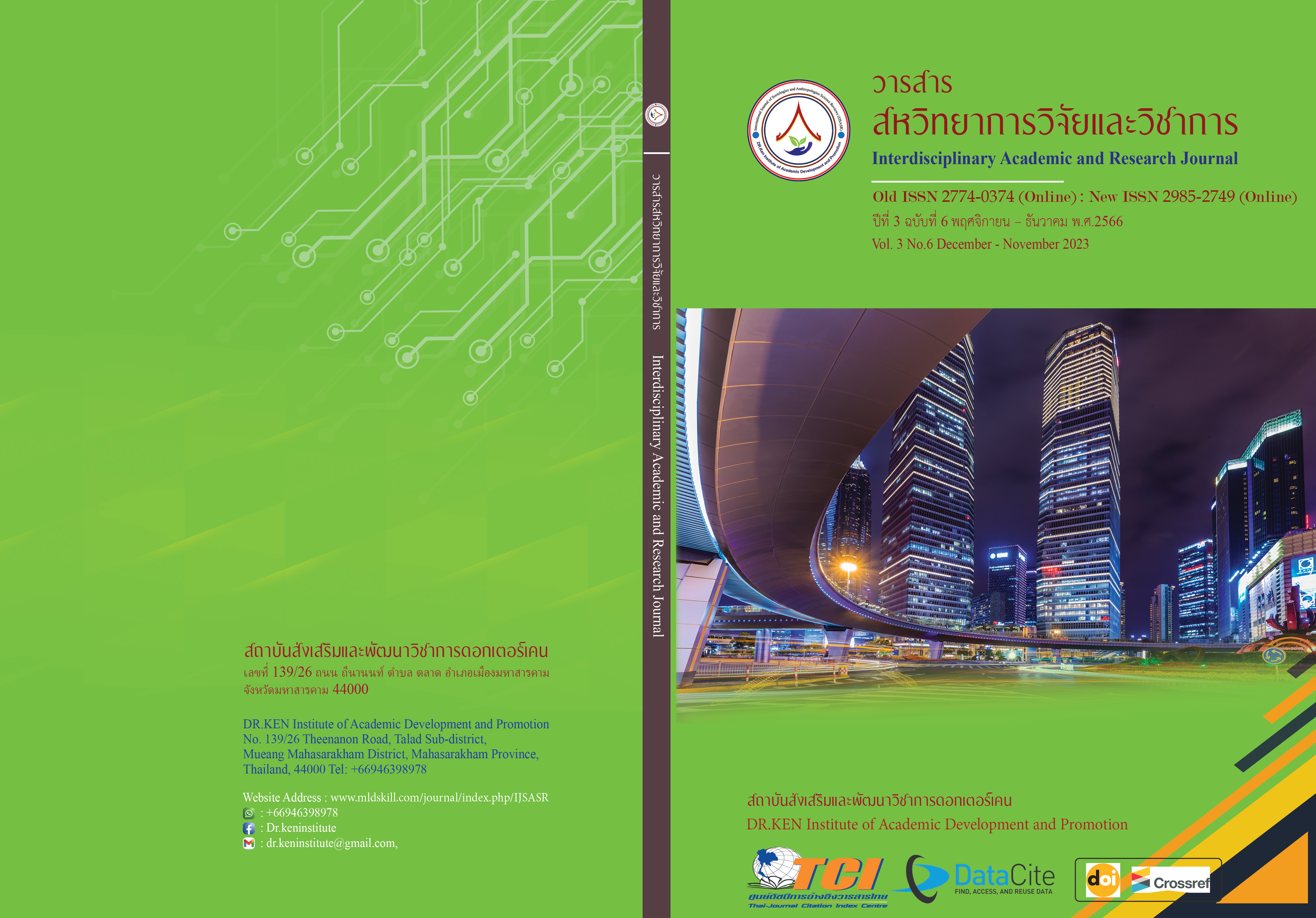A Needs Assessment and Guidelines for the Development of Mathematical Skills of Young Children
DOI:
https://doi.org/10.60027/iarj.2023.272662Keywords:
Basic Mathematics Skills; , Mathematics Skills and Processes;, Skills in Mathematical Content; , Needs AssessmentAbstract
Background and Aims: Early childhood is the beginning of learning. Mathematics can develop and strengthen children's knowledge and understanding of the nature around them and the things around them. Mathematics plays an important role in both learning and is beneficial to life. Promoting mathematics learning for early childhood children will be an important basis for learning mathematics in Grade 1. The purposes of this study were 1) to study the true condition and the condition that should be and proceed to develop mathematical skills of young children. 2) to suggest guidelines for developing mathematical learning for young children.
Methodology: The target group was 22 early childhood teachers and 13 grade 1 mathematical teachers, a total of 35 teachers at schools under Bangkok, Bang Kho Laem District Office. The instrument used in the study was an assessment form of the needs for the development of mathematical skills of young children and guidelines for the development of mathematical skills of young children. Analyzed quantitative data by mean and standard deviation and analyzed quality data by content analysis.
Results: The developing of the mathematical skills of young children in mathematics skills and processes was the first priority (0.28), followed by skills in mathematical content (0.25) and basic mathematical skills (0.19). For the needs assessment in guidelines for developing Learning mathematics for young children found that the during-experience provision was the first priority (0.24) followed by the after-experience provision (0.23) and the preparation the-experience provision (0.22).
Conclusion: The research confirms that the utmost importance in developing mathematical skills in early childhood lies in essential memory skills, with this skill receiving the highest significance index (0.28). Additionally, experiences during the learning process are identified as playing the most crucial role in promoting mathematical skills in young children.
References
ขนิษฐา บุนนาค. (2562). ทักษะพื้นฐาน คณิตศาสตร์สำหรับเด็กปฐมวัย. Retrieved on November 15, 2022, from https://anyflip.com/ohqky/ojkl/basic
มยุรีย์ เขียวฉะอ้อน. (2541). การประเมินความต้องการจำเป็นด้านทักษะพื้นฐานของครูอนุบาลโดยใช้การวิเคราะห์งาน.วิทยานิพนธ์ครุศาสตรมหาบัณฑิต (การวัดและประเมินผลการศึกษา) : บัณฑิตวิทยาลัย จุฬาลงกรณ์มหาวิทยาลัย.
ราชกิจานุเบกษา. (2542). พระราชบัญญัติการศึกษาแห่งชาติ พ.ศ.2542. กรุงเทพฯ: ราชกิจานเบกษา.
สถาบันส่งเสริมการสอนวิทยาศาสตร์และเทคโนโลยี. (2551). กรอบมาตรฐานการเรียนรู้คณิตศาสตร์ปฐมวัย. Retrieved on November 15, 2022, from https://earlychildhood.ipst.ac.th/wp-content/uploads/sites/25/2014/09/Math-framework-for-ECE.pdf.
สถาบันส่งเสริมการสอนวิทยาศาสตร์และเทคโนโลยี. (2563). กรอบการเรียนรู้และแนวทางการจัดประสบการณ์การเรียนรู้บูรณาการวิทยาศาสตร์ เทคโนโลยี และคณิตศาสตร์ในระดับปฐมวัย ตามหลักสูตรการศึกษาปฐมวัย พุทธศักราช 2560. กรุงเทพฯ : บริษัท โกโกพริ้นท์(ไทยแลนด์) จำกัด.
สุวิมล ว่องวาณิช (2542). การวิจัยประเมินความต้องการจำเป็น. กรุงเทพฯ: สำนักพิมพ์แห่งจุฬาลงกรณ์มหาวิทยาลัย
สุวิมล ว่องวาณิช. (2550). การวิจัยประเมินความต้องการจาเป็น. พิมพ์ครั้งที่ 2. กรุงเทพมหานคร: สานักพิมพ์แห่งจุฬาลงกรณ์มหาวิทยาลัย.
Piaget, J., & Inhelder, B. (1969). The Psychology of the Child. Basic Books, New York.
Vygotsky, L.S. (1995). Fantasi och kreativitet i barndomen [Imagination and Creativity in Childhood]. Goteborg: Daidalos.
Downloads
Published
How to Cite
Issue
Section
License
Copyright (c) 2023 Jarinee Wongnark , Oraphan Butkatunyoo, Chalatip Samahito

This work is licensed under a Creative Commons Attribution-NonCommercial-NoDerivatives 4.0 International License.
Copyright on any article in the Interdisciplinary Academic and Research Journal is retained by the author(s) under the under the Creative Commons Attribution-NonCommercial-NoDerivatives 4.0 International License. Permission to use text, content, images, etc. of publication. Any user to read, download, copy, distribute, print, search, or link to the full texts of articles, crawl them for indexing, pass them as data to software, or use them for any other lawful purpose. But do not use it for commercial use or with the intent to benefit any business.
















.png)


